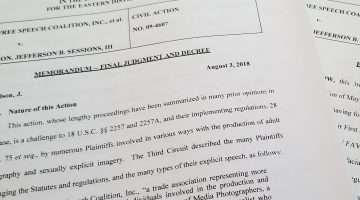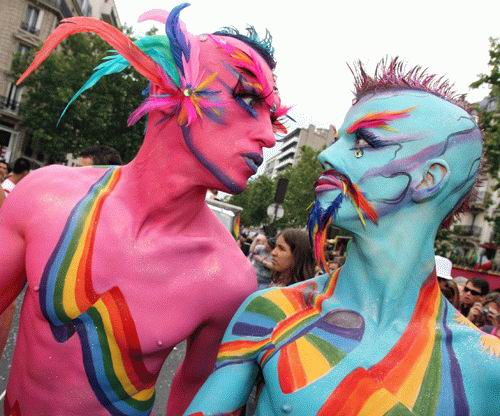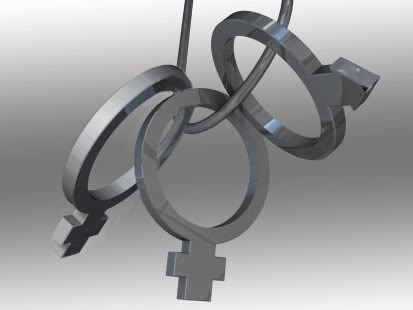 SACRAMENTO, Calif. – The California Supreme Court split the difference Tuesday, voting 6-1 to uphold the ban on same-sex marriages approved last year by voters through the initiative process and 7-0 to preserve the validity of the 18,000 marriages performed in state before the November election overrruled the court’s landmark 2008 ruling making gay marriage legal. Got that?
SACRAMENTO, Calif. – The California Supreme Court split the difference Tuesday, voting 6-1 to uphold the ban on same-sex marriages approved last year by voters through the initiative process and 7-0 to preserve the validity of the 18,000 marriages performed in state before the November election overrruled the court’s landmark 2008 ruling making gay marriage legal. Got that?
The ruling, while expected, was still a bitter pill to swallow for those who think Proposition 8 went too far in codifying the denial of what many believe is a funadamenal right. It was precisely the question of whether Prop 8 permissibly “amended” or impermissibly “revised” the constitution that became the fulcrum of the argument before the court.
In the end, 6 of the justices agreed that the “inalienable right” of the electorate to amend the constitution as they see fit does not trump the “inalienable rights” afforded all citizens of the state by Article 1, Section 1 of the state constitution, namely, to enjoy and defend life and liberty, acquire, possess, and protect property, and pursue and obtain safety, happiness, and privacy, among others. Those basic rights remain, said the court.
“Proposition 8 does not ‘abrogate’ or eliminate a same-sex couple’s ‘inalienable’ constitutional rights as guaranteed by article I, section 1 of the California Constitution. The language of the new constitutional section added by Proposition 8 does not purport to have such a broad reach or effect, and instead properly must be interpreted as simply carving out a limited exception to the reach of the constitutional rights of privacy and due process as explicated in the majority opinion in the Marriage Cases, supra, 43 Cal.4th 757,” wrote Chief Justice Ronald Geroge, in the majority opinion.
“Same-sex couples retain all of the fundamental substantive components encompassed within the constitutional rights of privacy and due process, with the sole (albeit significant) exception of the right to equal access to the designation “marriage,” a term that — for purposes of the California Constitution as it now reads — the people have decreed is to be reserved for an official union between a man and a woman.”
The lone dissenter was Associate Justice Carlos R. Moreno, who wrote, “Proposition 8 represents an unprecedented instance of a majority of voters altering the meaning of the equal protection clause by modifying the California Constitution to require deprivation of a fundamental right on the basis of a suspect classification. The majority’s holding is not just a defeat for same-sex couples, but for any minority group that seeks the protection of the equal protection clause of the California Constitution.
“This could not have been the intent of those who devised and enacted the initiative process. In my view, the aim of Proposition 8 and all similar initiative measures that seek to alter the California Constitution to deny a fundamental right to a group that has historically been subject to discrimination on the basis of a suspect classification, violates the essence of the equal protection clause of the California Constitution and fundamentally alters its scope and meaning.
“Such a change cannot be accomplished through the initiative process by a simple amendment to our Constitution enacted by a bare majority of the voters; it must be accomplished, if at all, by a constitutional revision to modify the equal protection clause to protect some, rather than all, similarly situated persons. I would therefore hold that Proposition 8 is not a lawful amendment of the California Constitution.”












No Comment